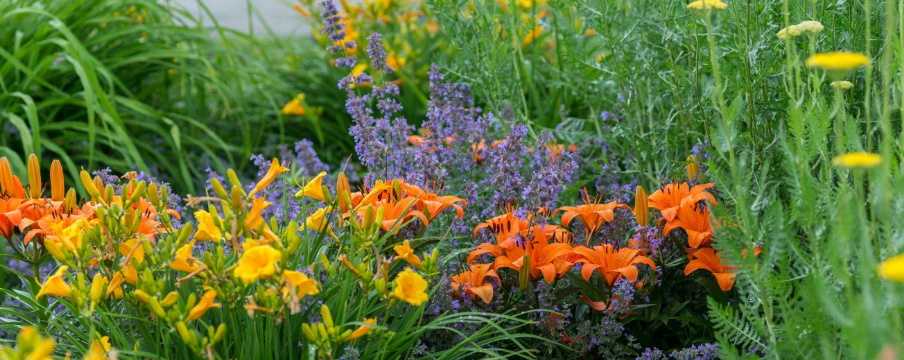
Do you think your job as a gardener is done as soon as spring transitions into summer? Think again! Whether you like it or not, there are still jobs to be done during the hotter summer months if you want to get the best possible performance out of your garden. Fortunately, most of the tasks on your summer to-do list are relatively quick and easy to complete. Besides, even the worst day in the garden is better than a day spent sitting at a desk!
Watch for Diseases
One of the key jobs that you have as a gardener in the summer months is to watch for signs of disease, and to take action if necessary. Warm and humid nights can be a breeding ground for disease, meaning you will need to keep tabs on the condition of your annuals, perennials and other flowers all throughout the summer. To prevent encouraging disease growth in your garden, do your best to water plants during the morning hours so that they have plenty of time to dry out before night falls. Wet leaves are prone to disease if they stay wet for long periods of time, which will be the case when you water right before the sun goes down. When you do find signs of disease, destroy plants that have been overtaken by the disease and use fungicides on plants with only minor damage.
Take Time to Deadhead
Deadheading is a task that is familiar to most gardeners, and summer is perhaps the best time to go through this ‘ritual’. Cutting back a plant by a third will give it a chance to thrive in the future, where leaving those dead blooms to hang on the plant will only lead to trouble and poor health down the line. This is a quick and easy task that can be done throughout the summer as necessary.
Think Mulch
Even if you did a great job of providing mulch for your plants in the spring, you may need to now replenish that mulch to get through the summer season successfully. Warm weather can quickly knock down your mulch, so think about padding your base around plants to protect them and to provide them with the nutrients they need to thrive. Of course, you always want to make sure that your plants will benefit from mulch, as some plants could be harmed if they don’t have enough room.
Fertilize!
You certainly feed yourself and your family through the summer months, and your flowers should be no different. Use fertilizers that are a good match for your plants and your climate for maximum effect. You aren’t going to need to fertilize all summer long, but even just an application or two can go a long way toward making sure your plants and flowers get what they need, when they need it.
Gardening is a never-ending job. That isn’t necessarily a bad thing, as millions of people love to get out in the garden to care for their plants. As long as you make sure you are staying on top of the task – even in the summer – you should be able to continue to enjoy your beautiful garden all the way until the winter weather settles in.
